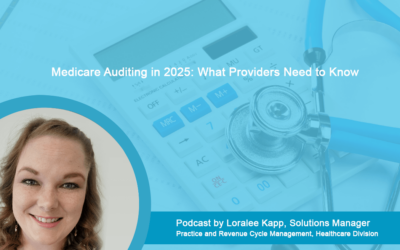Outsource Strategies International (OSI) is a reliable provider of comprehensive medical billing and coding services for diverse specialties including neurology, orthopedics, physical therapy, chiropractic and more.
In today’s podcast, Loralee Kapp, one of our Solutions Managers, discusses about Transient Global Amnesia and how outsourcing coding benefits practices.
Read Transcript
Hi all, this is Loralee Kapp, a Solutions Manager with Managed Outsource Solutions. Today I want to talk to you about Transient Global Amnesia and how outsourcing your coding needs to a medical billing and coding service can help.
For a full list of ICD 10 and CPT codes associated with this podcast, please see the attached article.
CPT
70010-76499: Diagnostic Radiology (Diagnostic Imaging) Procedures
70010-70559: Diagnostic Radiology (Diagnostic Imaging) Procedures of the Head and Neck
- 70450: The provider performed computed tomography, or CT scanning, of the head or brain, without contrast. He performs the procedure to diagnose any brain or intracranial abnormalities.
- 70460: The provider performs computed tomography, or CT scanning, of the head or brain, with contrast. He performs the procedure to diagnose any brain or intracranial abnormalities, such as cerebral aneurysm.
- 70551: The provider uses magnetic resonance imaging, or MRI, to examine the brain and brain stem. The provider does not administer contrast for the exam.
- 70552: The provider uses magnetic resonance imaging, or MRI, to examine the brain and brain stem using contrast.
- 70553: In this procedure, the provider performs a magnetic resonance imaging, or MRI, study of the brain including the brain stem. He performs this procedure without using contrast material. He then follows with contrast material and takes more images.
95700-96020: Neurology and Neuromuscular Procedures
95954-95962: Other EEG Testing procedures
- 95954: In this procedure, the provider uses a drug or physical activity to stimulate a patient during electroencephalogram recording. This code requires provider attendance during activation.
- 95957: In this procedure, the provider performs computer based analysis of an electroencephalogram, abbreviated as EEG.
95965-95967:MEG Testing Procedures
- 95965: In this procedure, the provider records and analyzes the patient’s spontaneous brain magnetic activity by using magnetoencephalography, a neuroimaging technique that uses sensors to form images of the magnetic field produced within the brain.
- 95966:In this procedure, the provider records and analyzes the patient’s evoked brain magnetic activity by using magnetoencephalography , a neuroimaging technique that uses sensors to form images of the magnetic field produced within the brain.
- 95967: In this add-on procedure, the provider records and analyzes evoked brain magnetic activity by using magnetoencephalography, a neuroimaging technique that uses sensors to form images of the magnetic field produced within the brain. He examines an additional brain modality in this test like language, sensory, or motor function.
96116-96127: Neurobehavioral Status Examination
-
- 96116: A physician or other qualified health care professional performs face-to-face assessment to analyze a patient’s thinking, reasoning and judgment. Report this code for the first hour of face-to-face clinical assessment as well as the time spent in interpreting the results and preparing a report.
- 96121: A physician or other qualified health care professional performs face-to-face assessment of a patient’s thinking, reasoning and judgment. Report this code for each additional hour of face-to-face clinical assessment including the time spent interpreting the results and preparing a report.
- 96125: Comes under Assessment of Aphasia and Cognitive Performance Testing. The health provider performs standardized cognitive performance, which is a functional assessment for a person with memory loss.
90791-90792: Psychiatric Diagnostic Evaluation Services
- 90791: In this service, the provider performs a psychiatric evaluation of the patient with the aim of making a diagnosis.
ICD-10
G45.4 Transient global amnesia
00:23 What is Transient Global Amnesia?
Although Transient Global Amnesia is not a life-threatening condition, its symptoms can be scary for patients and cause emotional distress. Medical practitioners analyze the symptoms as it is difficult to distinguish the symptoms of Transient Global Amnesia from other serious illnesses. Neurologists rely on medical billing and coding services to accurately code the diagnosis as well as the medical procedures provided to treat the condition.
00:49 Transient Global Amnesia – Diagnosis Tests
Patients are directed to undergo various tests to confirm that the memory loss is due to Transient Global Amnesia.
The tests required include:
- A blood test to determine levels of Vitamin B1, Vitamin B12 and thyroid hormone
- Imaging tests like MRI or CT scans to rule out brain damage
- Electroencephalogram (EEG), and
- A psychiatric evaluation
As coding these diagnoses and procedures can be complicated, medical coding outsourcing is adopted as a practical solution by health practitioners for ensuring efficient billing flow with quick reimbursement, meaning they can focus more on diagnosing the cause of the underlying condition without hiring expert in-house coders for these critical transactions.
With the AAPC and AHIMA certified coders, we at Managed Outsource Solutions are here to help with your medical billing and coding means, so please reach out to us for additional information on our services.



